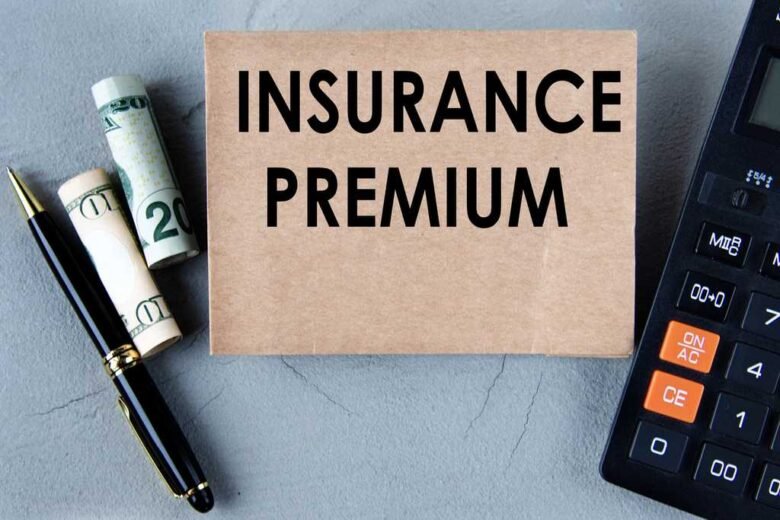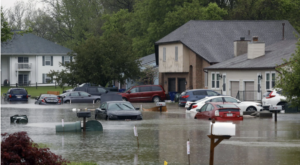Home insurance is an important financial product that can help people protect their homes from being lost or damaged. Rates (that is, the cost of home insurance) can vary significantly depending on several factors. Homeowners who want to ensure that they have adequate coverage while keeping costs down should know these things. This article discusses the various factors that affect home insurance rates, helping people make an informed decision.
1. Location of the Home:
Home insurance rates are affected by where in the world your home is located. Homes in places that are more susceptible to natural disasters such as hurricanes, floods, or wildfires tend to have higher insurance premiums. For example, homes near the coast may be more susceptible to storm and flood damage, which can lead to higher insurance costs. On the other hand, insurance rates may be cheaper for homes in lower-risk areas, such as areas that are not near flood zones or in places where natural disasters are less likely to occur. Additionally, premiums may increase in cities with higher crime rates, where the risk of theft and damage is greater.
2. How Old is the Home, and What Is Its Quality?
The cost of insurance largely depends on the age and damage to the home. Insurance companies may take a greater risk if homes are older, as their plumbing, electrical systems, and roofs may not be up to date. Insurance rates for these types of homes may be higher because there is a greater chance of fire, leaks, or structural problems. On the other hand, newly built homes often have more advanced safety features and materials, which can result in lower insurance rates. Homeowners should consider replacing or renovating their property to a better condition, as this can help them save on insurance premiums.
3. Home Value and Insurance Amount:
The cost of home insurance is directly related to the value of your home. Premiums increase because homes with higher values require more insurance, which makes them more expensive. Homeowners need to know the exact value of their belongings and possessions to ensure they have enough coverage without going over. Many insurance companies offer calculators and other tools to help people determine how much coverage they need based on the value of their home. It is important to keep a close eye on how much coverage you have, especially after making a major purchase or improvement, so that you do not end up without enough coverage or paying too much for coverage you do not need.
4. Tax Credit:
A homeowner’s deductible is the amount of money they are willing to pay out of pocket before the insurance company starts paying out. When you choose a higher deductible, your premium will generally be lower because the insurance company is taking on less risk. On the other hand, if you choose a lower deductible, your premium will be higher because the insurance company will have to pay a larger portion of the claim. Homeowners should carefully consider their financial situation when choosing a deductible. It may be cheaper to have a higher deductible, but you may end up paying a lot of money out of pocket if you need to file a claim. For good financial planning, it is important to find the right balance between premiums and deductibles.
5. Your Credit Score:
Insurance companies in many states use credit scores to determine how risky someone is. Homeowners with better credit are generally considered less risky, which means their interest rates are lower. Research shows that there is a correlation between a person’s credit history and the likelihood of filing a claim. That is why this is done. That is why maintaining a high credit score can have a big impact on your insurance costs. Homeowners should focus on their credit history and take steps to improve it if necessary. Better credit health can be achieved by paying bills on time, reducing debt, and avoiding new credit applications.
6. Claims History:
A homeowner’s caseload also has a big impact on insurance rates. If a homeowner has filed a lot of claims in the past, their insurance company may view this as a greater risk and raise their rates. Past claims can still affect future insurance costs, even if the claim is for a minor issue. Homeowners should pay close attention to their claims activity and consider whether it would be better to pay for minor repairs out of pocket rather than file a claim. It’s best to avoid filing claims when you don’t have to, as a clean claims history can save you money and lower your premiums.
7. Security Features:
How secure your home is has a big impact on your insurance costs. Homes with security systems, smoke detectors, fire alarms, and security locks tend to have lower insurance rates. These features make a home safer from theft, fire, and other threats, meaning insurance companies view it as less dangerous. Homeowners should consider spending money on security upgrades to protect their property and lower their insurance costs. Some insurance companies may also offer premium discounts for improvements that use less energy or are better for the environment.
8. Run a Business from Home:
Renter’s insurance costs could also change for people who run a business from their home. Some homeowners insurance policies may not cover business-related tasks or equipment as they should. A home-based business may need more coverage, which can increase the overall insurance cost. Because they are running a business from home, people should make sure their insurance company understands this and that they have the right coverage. If you don’t, you may not be adequately protected in the event of a claim related to your business operations.
9. Possibility of Natural Disasters:
Homes in areas prone to natural disasters have higher insurance rates because they are more susceptible to damage. Insurance companies typically consider the likelihood of events such as earthquakes, floods, and storms when setting rates. People who live in areas prone to natural disasters may need to purchase additional coverage, such as flood or earthquake insurance, which can further increase their overall insurance costs. Homeowners should understand the specific risks in their area and consider additional coverage to ensure they are adequately protected.
Conclusion:
Purchasing home insurance is an important way to protect your property and finances. Understanding the factors that affect premiums can help people make informed choices about their insurance needs. Homeowners can take steps to control costs and ensure they have adequate coverage by considering factors such as location, property value, security features, and past incidents. Regularly reviewing your insurance plan and shopping around for the best rates can help you increase your financial security and gain peace of mind.
FAQs:
1. How does the number of claims I file affect my insurance rates?
If you have a history of filing a lot of claims, the insurance company may consider you a higher risk and raise your rates. If you have not filed a claim in the past, you can keep your chances low.
1. What are the main factors that affect the cost of home insurance?
Your home insurance rate is based on many important factors, including the location of your home, its age and condition, its value, your credit score, your claims history, your home’s security features, and the risk of natural disasters.
2. Does where I live affect the cost of my insurance?
Insurance rates are typically higher for homes in areas that are prone to natural disasters, have higher crime rates, or are more expensive to rebuild. On the other hand, homes in better, less risky areas may have lower rates.
3. Will the age of my home change the amount of insurance I pay?
Yes, older homes may have higher insurance rates because their systems are more likely to break down and become damaged. Insurance rates may be cheaper for newer homes because they have more of the latest security features.
4. How does my credit score affect the amount of home insurance I pay?
Insurance companies can use credit scores to determine how risky a person is. People with higher credit scores tend to pay less for insurance, while people with lower credit scores may have to pay more because they are seen as a higher risk.
5. How does the number of claims I file affect my insurance rates?
If you have a history of filing a lot of claims, the insurance company may consider you a higher risk and raise your rates. If you have not filed a claim in the past, you can keep your chances low.




